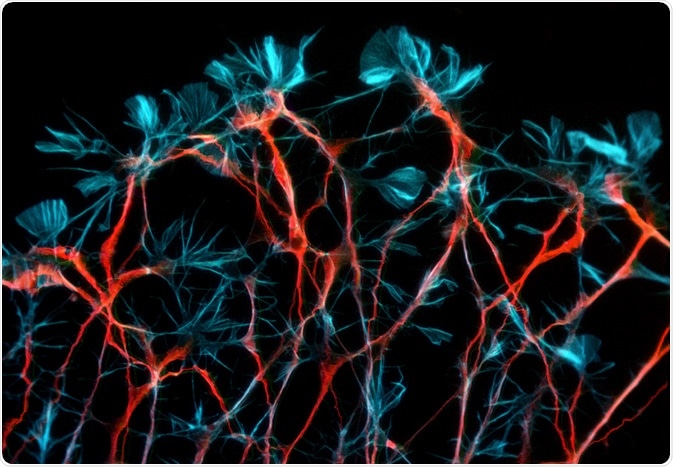Scientists based in South Korea have identified metabolic changes in the brains of rats that may be useful in the discovery and development of key biomarkers and treatments for addiction.
 Image Credits: Heiti Paves / Shutterstock.com
Image Credits: Heiti Paves / Shutterstock.com
The research team published their paper last September in the journal Proteome Research where they describe how they observed the changes occurring within rats’ brains following methamphetamine self-administration and withdrawal that could provide a window into developing more effective treatments for tackling addiction in humans.
Tackling the high relapse rates of drug addiction
According to the National Institute on Drug Abuse, between 40% and 60% of people in recovery for drug addiction will relapse. The figures resemble those of relapse rates for chronic illnesses, giving a depressing outlook for the future for those suffering from addiction.
Figures from British studies have identified that opiate addiction is the hardest to recover from, with only 30% completing treatment successfully, and while alcohol shows the highest success rates at 62%, there is still much room for improvement.
One major reason for addiction being difficult to fully recover from is because of the intense physical and psychological withdrawal symptoms people face when they stop taking the substance they were addicted to.
Methamphetamines are considered to be one of the most addictive drugs. In the US, roughly 6% of the population has tried it on at least one occasion. The drug impacts the brain’s functioning, releasing dopamine, making the person feel good and encouraging them to take more to keep feeling good.
This can rapidly lead to repeated use of the drug, leading to tolerance and the emergence of withdrawal symptoms, eventually leading to dependence. Once dependence has set in, the brain’s functioning and chemical circuitry have been rewired by the drug.
Methamphetamine use can cause a myriad of serious health issues, including death from overdose or kidney failure. Due to its potency and high addictiveness, scientists have been exploring new, more effective therapies for methamphetamine addiction.
Currently, there is a lack of understanding of the exact neurochemical changes that are brought about by the use and withdrawal of methamphetamine. To understand the mechanisms of methamphetamine addiction better, the team based in South Korea devised an experiment looking at metabolic changes as clues to the workings of addiction in the brain.
The research
To take a closer look at the impact of methamphetamine use and withdrawal on the brain, the researchers designed a study where they would look at the metabolic alterations in the brains of rats following methamphetamine self-administration.
During the experiment, the rats were trained to feed themselves either methamphetamine or saline (as a control) by pressing a lever. The researchers then removed access to the drug after 16 days and collected blood samples at scheduled intervals during this withdrawal period. The team then analyzed the blood to determine metabolic changes that were occurring between samples.
Significant alternations in the metabolic pathways that govern processes such as cell membrane lipid metabolism, energy metabolism, and the nervous system. A group of amino acids that are known precursors of numerous key neurotransmitters, including phenylalanine, tyrosine, and tryptophan, were found to be at much lower levels than would be expected in rats using methamphetamine in comparison to controls. These levels were shown to recover during the withdrawal stage.
Future diagnostic and therapeutic methods
Scientists identified these amino acids as potential biomarkers of methamphetamine addiction, and it has been suggested that systems could be developed for early diagnosis of addiction based on these biomarkers. On a broader scale, the research has provided a deeper level of understanding of how methamphetamine addiction impacts metabolic processes.
This information could inform further studies into the development of new and more effective treatments for assisting people recovering from methamphetamine addiction. This research comes just shortly after a team at Duke University announced a potential new drug to relieve withdrawal symptoms in people recovering from opioid addiction without maintaining the brain alterations related to addiction that currently available drugs do.
The team’s findings fall in with a growing area of research that is attempting to develop better treatments through better understanding the impact of drugs on the brain.
Sources
Kim, S., Jang, W., Yu, H., Ryu, I., Jeong, C. and Lee, S. (2019). Integrated Non-targeted and Targeted Metabolomics Uncovers Dynamic Metabolic Effects during Short-Term Abstinence in Methamphetamine Self-Administering Rats. Journal of Proteome Research, 18(11), pp.3913-3925. https://pubs.acs.org/doi/10.1021/acs.jproteome.9b00363
Further Reading
Last Updated: Mar 11, 2020